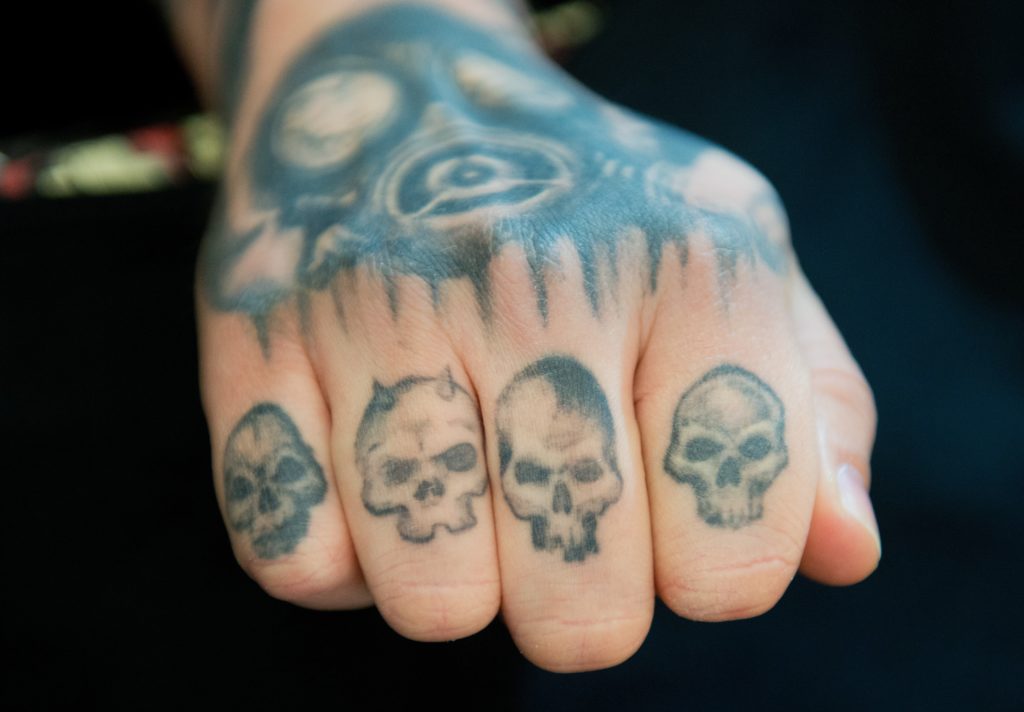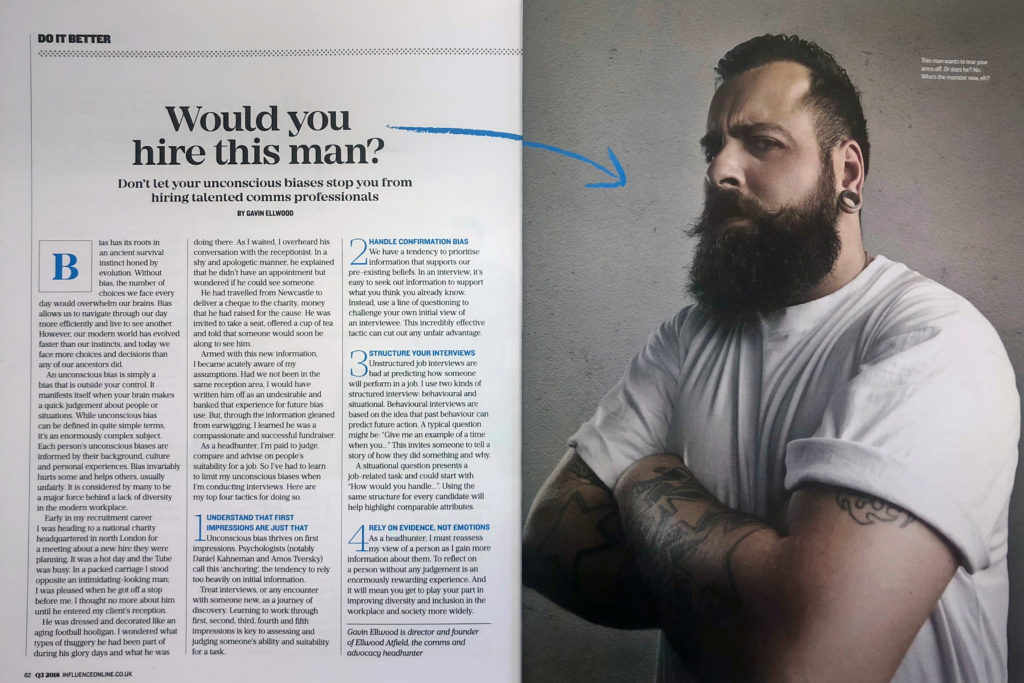
Don’t let your unconscious biases stop you from hiring talented comms professionals.
Bias has its roots in an ancient survival instinct honed by evolution. Without bias, the number of choices we face every day would overwhelm our brains. Bias allows us to navigate through our day more efficiently and live to see another. However, our modern world has evolved faster than our instincts, and today we face more choices and decisions than any of our ancestors did.
An unconscious bias is simply a bias that is outside your control. It manifests itself when your brain makes a quick judgement about people or situations. While unconscious bias can be defined in quite simple terms, it’s an enormously complex subject. Each person’s unconscious biases are informed by their background, culture and personal experiences. Bias invariably hurts some and helps others, usually unfairly. It is considered by many to be a major force behind a lack of diversity in the modern workplace.
Early in my recruitment career, I was heading to a national charity headquartered in north London for a meeting about a new hire they were planning. It was a hot day and the Tube was busy. In a packed carriage I stood opposite an intimidating-looking man; I was pleased when he got off a stop before me. I thought no more about him until he entered my client’s reception.
He was dressed and decorated like an ageing football hooligan. I wondered what types of thuggery he had been part of during his glory days and what he was doing there. As I waited, I overheard his conversation with the receptionist. In a shy and apologetic manner, he explained that he didn’t have an appointment but wondered if he could see someone.
He had travelled from Newcastle to deliver a cheque to the charity, money that he had raised for the cause. He was invited to take a seat, offered a cup of tea and told that someone would soon be along to see him.
Armed with this new information, I became acutely aware of my assumptions. Had we not been in the same reception area, I would have written him off as an undesirable and banked that experience for future bias use. But, through the information gleaned from earwigging, I learned he was a compassionate and successful fundraiser.
As a headhunter, I’m paid to judge, compare and advise on people’s suitability for a job. So I’ve had to learn to limit my unconscious biases when I’m conducting interviews. Here are my top four tactics for doing so.
1) UNDERSTAND THAT FIRST IMPRESSIONS ARE JUST THAT. Unconscious bias thrives on first impressions. Psychologists (notably Daniel Kahneman and Amos Tversky) call this ‘anchoring’, the tendency to rely too heavily on initial information. Treat interviews, or any encounter with someone new, as a journey of discovery. Learning to work through first, second, third, fourth and fifth impressions is key to assessing and judging someone’s ability and suitability for a task.
2) HANDLE CONFIRMATION BIAS. We tend to prioritise information that supports our pre-existing beliefs. In an interview, it’s easy to seek out information to support what you think you already know. Instead, use a line of questioning to challenge your own initial view of an interviewee. This incredibly effective tactic can cut out any unfair advantage.
3) STRUCTURE YOUR INTERVIEWS. Unstructured job interviews are bad at predicting how someone will perform in a job. I use two kinds of structured interview: behavioural and situational. Behavioural interviews are based on the idea that past behaviour can predict future action. A typical question might be: “Give me an example of a time when you…” This invites someone to tell a story of how they did something and why. A situational question presents a job-related task and could start with “How would you handle…”. Using the same structure for every candidate will help highlight comparable attributes.
4) RELY ON EVIDENCE, NOT EMOTIONS. As a headhunter, I must reassess my view of a person as I gain more information about them. To reflect on a person without any judgement is an enormously rewarding experience. And it will mean you get to play your part in improving diversity and inclusion in the workplace and society more widely.
Gavin Ellwood is director and founder of Ellwood Atfield, the comms and advocacy headhunter.
This article was written by Gavin Ellwood for Influence Magazine and appeared originally in the September 2018 issue.



